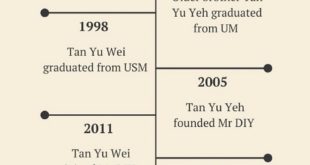Despite a global pandemic, Singapore is still drawing investments from global tech firms. As the US-China tech race heats up, more firms are flocking to Singapore in a bid to escape the fallout.
In the first half of 2020, Singapore has already drawn S$ 14.3 billion in fixed-asset investments — this is 95 per cent of the total investment commitments for 2019.
Last year’s S$ 15.2 billion in investments already marked a seven-year high.
Companies like DB Schenker, PayPal, Kajima, Johnson Controls and Descartes Underwriting are either planning to, or have already announced investments in Singapore this year.
As green lanes reopen, the prospects for international business are starting to look up. Here are five global tech firms ramping up their presence in Singapore this year.
TikTok / ByteDance
ByteDance, the parent company of TikTok, is planning to use Singapore as its beachhead to expand to the rest of Asia. To date, Tik Tok already has over 400 workers employed in tech, sales and marketing, with over 200 positions open on its job referral site.
According to a confidential source, the tech firm will be investing billions of dollars and adding hundreds of jobs over the next three years in Singapore. ByteDance is also among the companies competing for a digital bank license here.

The pivot towards Singapore comes on the heels of ByteDance’s embattled relationship with the Trump administration. Last month, Trump ordered a sale of TikTok on the grounds of US security concerns.
Earlier today, ByteDance dropped the proposed US sale, announcing a partnership with Oracle in an attempt to appease both the US and Chinese government.
Check out their job portal here.
Bigo Live
Bigo, whose apps Likee and Bigo Live compete directly with TikTok, announced that it would be moving its servers from Hong Kong to Singapore last month.

Hong Kong’s new security law gives the Chinese government the power to demand that companies turn over private user data, prompting the mass retraction of tech firms from the embattled city.
Bigo has not announced detailed plans for expansion, but its retraction from Hong Kong may follow the path of other tech giants hoping to relocate to Singapore as “neutral ground” in the US-China tech rivalry.
Check out their job portal here.
In February 2020, Twitter announced that it would be setting up its first engineering centre in the Asia Pacific in Singapore, creating 65 new positions to be filled over the next few years.

The new hires will work in product, software and data engineering, and data science. Twitter first set up its Asia-Pacific headquarters in Singapore in 2015, and first international data science team here a year later.
Check out their job portal here.
Zoom
Last month, Zoom announced that it would be opening a data center in Singapore, marking the first time the web platform will be expanding to Southeast Asia.
The tech giant announced that it will be hiring an unspecified number of engineers and sales staff, and offering new services like Zoom Phone to scale in Southeast Asia.

Like Tik Tok, Zoom has come under scrutiny over the risks of it transmitting private user data to China. In April, Singapore banned teachers from using Zoom for remote learning after hackers posted obscene images on screens.
Check out their job portal here.
Rakuten
Rakuten Mobile established its global headquarters in Singapore this year, although it has remained silent on its Singapore headcount and hiring processes.

The Japanese giant will use its Singapore office as the base to unveil its fully-virtual, cloud-native mobile communications platform, the Rakuten Communication Platform (RCP).
Rakuten will be partnering with NEC to develop a scalable 4G and 5G cloud-native converged core to be ready for the 5G rollout in Singapore. 5G services are on track to be rolled out in September.
Check out their job portal here.
Featured Image Credit: The Verge / Windows Bulletin Tutorials / Variety / Linkedin



